What's The Secret Power That The Most Loved Brands Have? Their Personality.

A dear friend of mine, who I've known for decades now, has an amazing personality. She’s fun (ready for a good time), outgoing (can easily engage in conversation with just about anyone), and personable (people just like her). She’s also a talented and successful marketing executive. On top of all this, she’s an unbelievable athlete. She’s run numerous marathons, but if that wasn’t enough, will throw in a couple of Ironman competitions to sprinkle on top for some excitement, courage, and inspiration. If I was to define her personality as a brand, she would be Starbucks (fun, outgoing, & personable), Google (confident & successful), and Red Bull (courageous, exciting, athletic, who happens to be a redhead) all rolled into one. And by the way, these combined brands generated over $263 BILLION in revenue last year.
When someone has a great personality we are drawn to them. We want to be with them because they make us feel good. A brand’s personality works the same way. Brands, just like humans, have personality traits that help make them relatable, mirroring the characteristics you value. Let’s explore further what a brand personality is, why a brand personality matters, and how to create your brand personality.
Listen To The Article
What Is A Brand Personality?
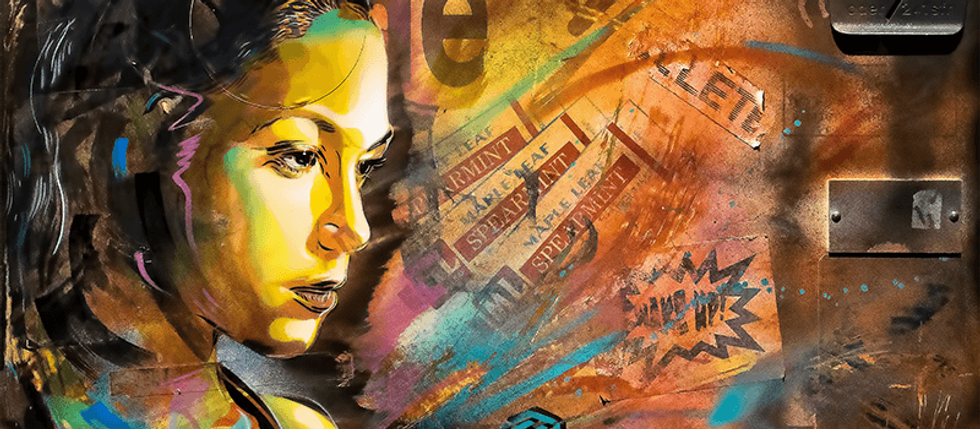
A brand personality can be defined as the set of human characteristics associated with your brand. It’s communicated through tone of voice, visuals, and even policies. They’re expressed as adjectives that convey how you want people to perceive your brand. For example, is your brand cheerful, funny, friendly, youthful, innovative, spirited, dependable, responsible, credible, sophisticated, rebellious, cunning, powerful, honest, and so on? Here is a list of 200+ adjectives to get you started.
Let’s look at an example. Coca-Cola is considered real and authentic while Pepsi tends to be young, spirited, and exciting, and Dr. Pepper is seen as nonconforming, unique, and fun. Source.
A brand can also be described by demographics (age, gender, social class, and race), lifestyle (activities, interests, and opinions), or human personality traits (extroversion, agreeableness, and dependability). Source.
For example:
- If Harley Davidson were a person? It would be a man. Lululemon? A woman.
- Tesla would be innovative while Red Cross would be traditional.
- Kylie Cosmetics would live in a mansion and Goodwill would rent an apartment.
Why Does Brand Personality Matter?
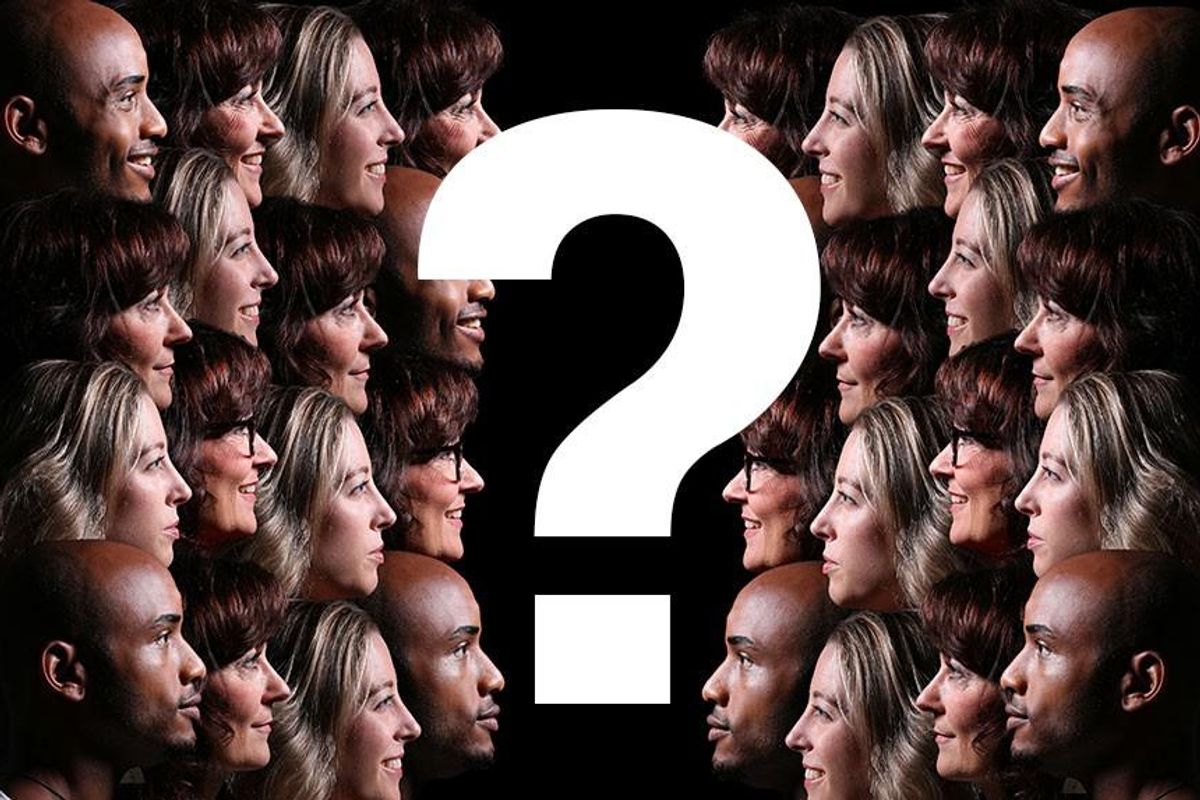
If your brand neglects to define its personality, rest assured that people will form their own perceptions of you whether you like it or not. Take control of your brand by developing a well-defined brand personality. Here's why…
- Develops An Emotional Connection: According to Harvard professor Gerald Zaltman, “95% of purchase decision making takes place in the subconscious mind.” People buy emotionally, even if they don’t realize it, and then justify their decisions rationally. Brands that present themselves in a human and personal way will do better than brands that rely on facts and figures.
- Drives Competitive Differentiation: A brand personality is an important factor in differentiating you from your competitors, especially when brands are similar with respect to product attributes.
- Guides Communication: A brand personality statement provides depth and texture that make it easier to keep the communication effort on target. Source. In fact, your brand personality can help reinforce the way you communicate your story and message to your audience.
- Enhances Brand Loyalty: As customers get to know and love your brand personality, their connection to your brand grows stronger, just like getting to know a new friend better. Over time and consistent communication, you will build strong brand loyalty.
How To Create A Brand Personality

There are three approaches on how to find your brand personality; use the one that best fits your needs.
Let’s first look at Jennifer Aaker’s Dimensions of Brand Personality framework which contains 15 traits organized into five factors.
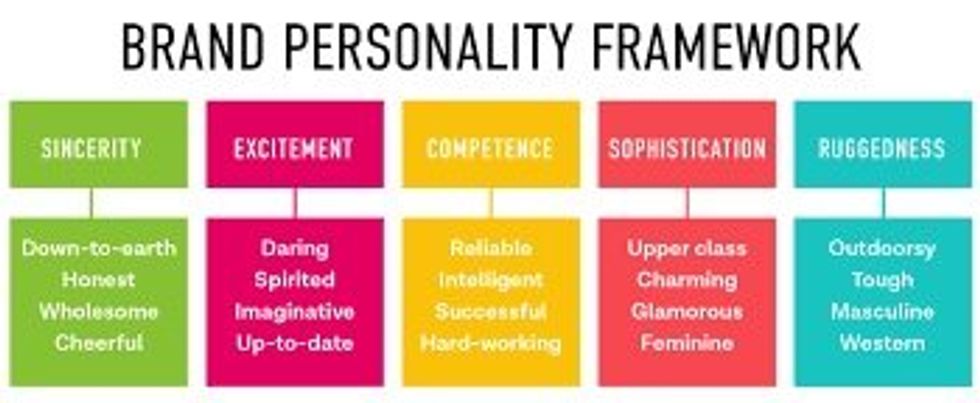
- Sincerity (Dove, Volvo, Hallmark)
- Down-To-Earth: family-oriented, small-town, conventional, blue-collar, all-American
- Honest: sincere, real, ethical, thoughtful, caring
- Wholesome: original, genuine, ageless, classic, old-fashioned
- Cheerful: sentimental, friendly, warm, happy
- Excitement (BuzzFeed, Nike, Red Bull)
- Daring: trendy, exciting, off-beat, flashy, provocative
- Spirited: cool, young, lively, outgoing, adventurous
- Imaginative: unique, humorous, surprising, artistic, fun
- Up-To-Date: independent, contemporary, innovative, aggressive
- Competence (SpaceX, Rolex, Microsoft)
- Reliable: hardworking, secure, efficient, trustworthy, careful
- Intelligent: technical, corporate, serious
- Successful: leader, confident, influential
- Sophistication (Chanel, Dolce & Gabbana, Apple)
- Upper Class: glamorous, good-looking, pretentious, sophisticated
- Charming: feminine, smooth, sexy, gentle
- Ruggedness (REI, Old Spice, Harley-Davidson)
- Outdoorsy: masculine, Western, active, athletic
- Tough: rugged, strong, no-nonsense
Here are three steps to developing your brand personality under this model:
- Brainstorm: Begin by brainstorming a list of personality traits (here's a list of 200+ adjectives to get you started) that best represent your brand. Group these traits under one of the five brand personality dimensions. For example, adventure, exploration, and self-discovery represent Patagonia and fall under Ruggedness.
- Rate: Rate each brand personality trait on a scale from one to five. One being the least descriptive and five being the most descriptive of your brand. This process helps determine which of the brand personality traits represents your brand the most.
- Organize: Organize your findings to see where your brand rates on a scale from high to low. Determine where your brand should focus within the five brand personality dimensions.
Next, is Brand Archetypes Framework by Carl Jung. Carl Jung believed that archetypes were models of people, behaviors, or personalities, thus making them more recognizable and relatable to target audiences. Jung identified 12 archetypes. The idea is that any brand can relate to one of the 12 archetypes that help define the brand.
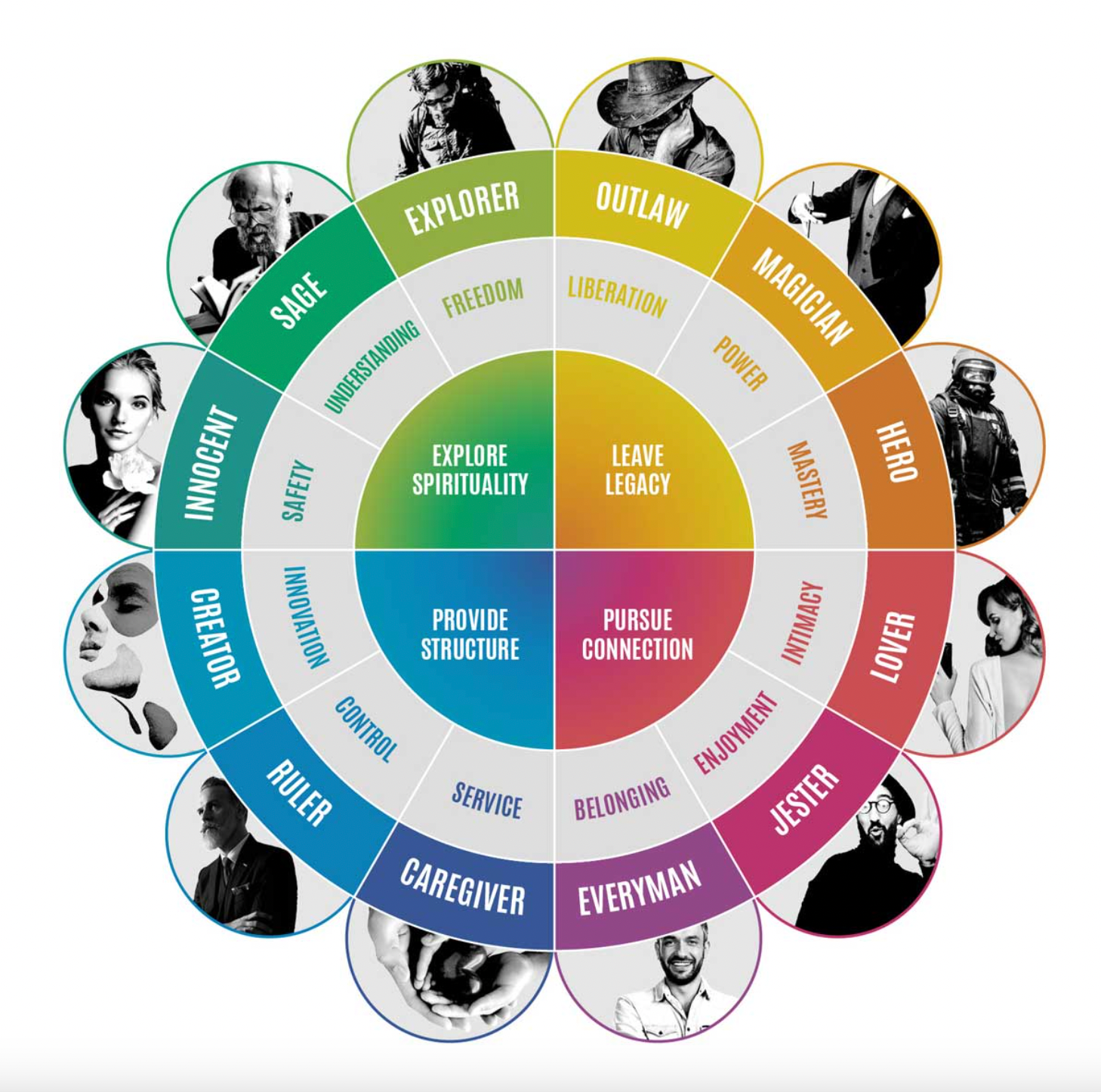
As you evaluate the Brand Archetypes Framework, start by thinking about the following:
- Does your brand connect with one of the archetypes better than another?
- What personality traits do your customers tend to value and aspire to?
- What brand archetype feels right?
- Be sure that your brand messaging supports your brand personality.
Finally, there is the Combo Brand Archetypes & Brand Personality Frameworks. This model combines the Brand Archetypes and the Dimensions of Brand Personality Frameworks mentioned above.
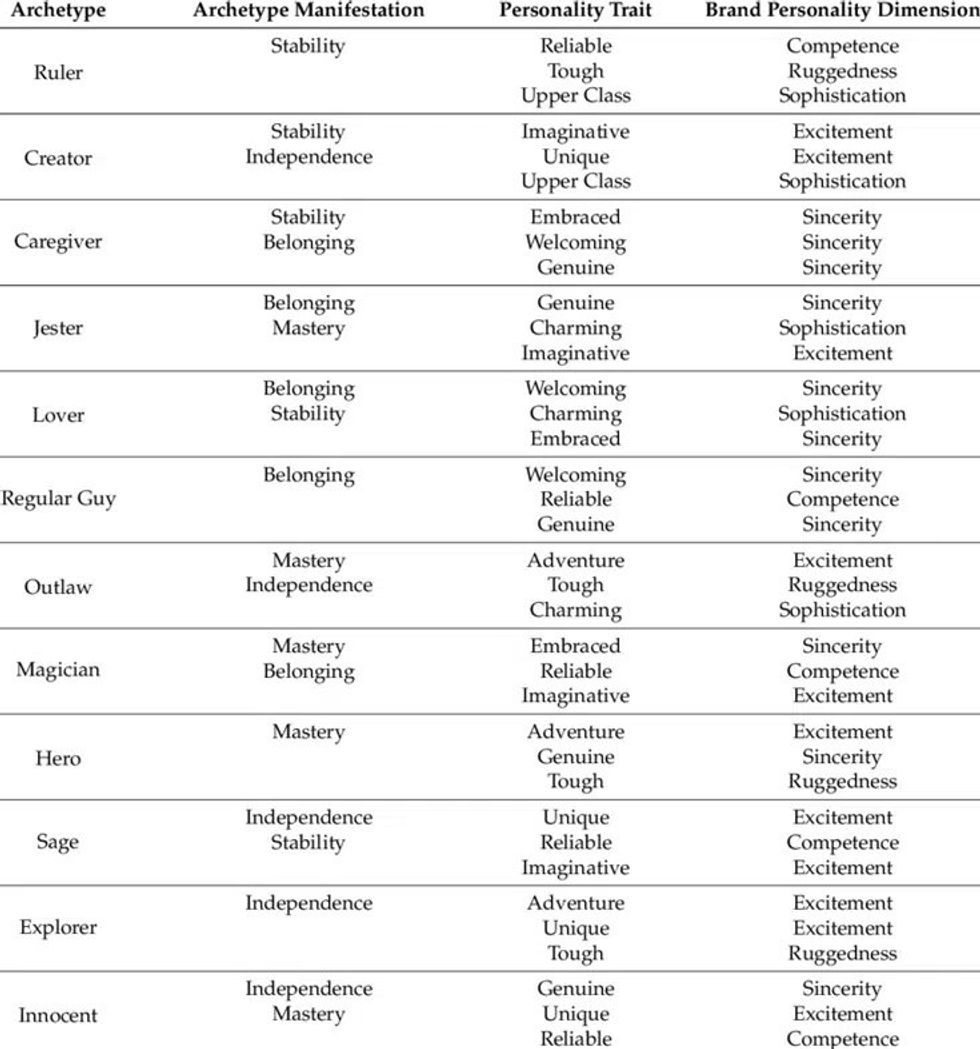
The flexibility of this method allows you to create your own framework using your best judgment.
In conclusion, your brand personality is one of the most powerful strategic tools to humanize your brand. Defining your brand personality will help you make better decisions across each aspect of your business. Start building your brand leadership today. You’ve got this!
- 5 Trends Disrupting Consumer Branding In 2022 - Work It Daily ›
- #1 Rookie Mistake You Shouldn't Make With Brand Messaging ... ›
- How To Shape Perceptions With A Brand Messaging Framework ... ›

 Bigstock
Bigstock Bigstock
Bigstock Bigstock
Bigstock


